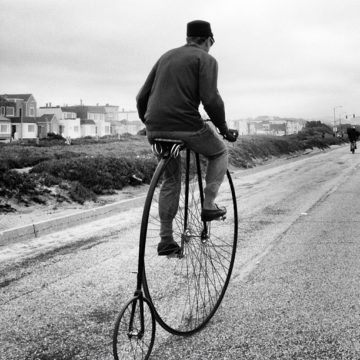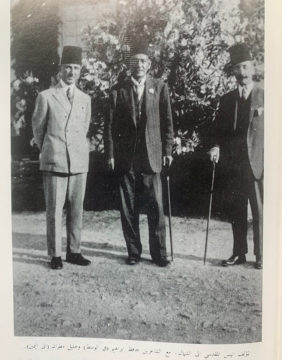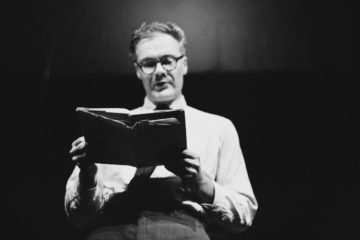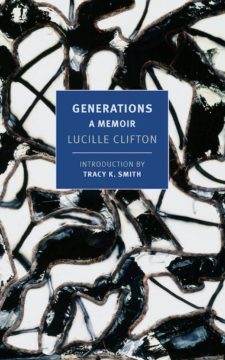Tolu Olasoji in Reasons to be Cheerful:
 Jean Luc remembers how, when he was very young, his parents would leave their house in Kimihurura, a neighborhood of Kigali, once a month in a good mood. He didn’t know what they were smiling about.
Jean Luc remembers how, when he was very young, his parents would leave their house in Kimihurura, a neighborhood of Kigali, once a month in a good mood. He didn’t know what they were smiling about.
“I would always eavesdrop on my parents whenever they came [back] from it,” he says. “It always seemed like something that brightened their Saturdays.”
Now 21 years old, it brightens Luc’s Saturdays, too.
Luc, along with just about every able-bodied Rwandan aged 18 to 65, participates in the monthly activity known as “Umuganda,” a Kinyarwanda word that means “coming together in common purpose.” On the last Saturday of every month, from 8 to 11 a.m., Rwandans across the country gather together to partake in community improvement projects. In Luc’s neighborhood, this has meant trimming back bushes that attract malaria-spreading mosquitoes, and making sure roads are clear of trash and debris. “It not only ensured that we have a clean environment,” he says, “but also had a long-run positive effect on our health and physical wellbeing. And you know what they say, a healthy nation leads to a wealthy nation.”
More here.

 Purgatory seems to be on people’s minds this year – we have several new translations of Dante’s canticle to consider in time for Christmas. Fortunately, we have Dantista
Purgatory seems to be on people’s minds this year – we have several new translations of Dante’s canticle to consider in time for Christmas. Fortunately, we have Dantista  Today in 1982, Gabriel García Márquez
Today in 1982, Gabriel García Márquez  “An argument without end” is how Joseph J. Ellis characterizes history in “The Cause: The American Revolution and Its Discontents, 1773-1783,” one of several notable fall releases on America’s Revolutionary War era. Like “The Cause,” new works by historians H.W. Brands and Woody Holton and novelist Matthew Pearl, making his nonfiction debut, are evidence that when it comes to the story of America’s origins, the argument continues to evolve. These books look beyond the Founding Fathers to consider early American history from a fascinating range of perspectives.
“An argument without end” is how Joseph J. Ellis characterizes history in “The Cause: The American Revolution and Its Discontents, 1773-1783,” one of several notable fall releases on America’s Revolutionary War era. Like “The Cause,” new works by historians H.W. Brands and Woody Holton and novelist Matthew Pearl, making his nonfiction debut, are evidence that when it comes to the story of America’s origins, the argument continues to evolve. These books look beyond the Founding Fathers to consider early American history from a fascinating range of perspectives. What do economics, biological evolution, and democracy have in common? They are all complex adaptive systems. This realization reflects one of the core strengths of a diverse intellectual background – there are meaningful commonalities underlying different systems and areas of knowledge. In fact, science and academia themselves are complex adaptive systems that benefit from diversity of knowledge and perspective. All such systems benefit from diversity, and suffer when that diversity is narrowed, possibly even fatally.
What do economics, biological evolution, and democracy have in common? They are all complex adaptive systems. This realization reflects one of the core strengths of a diverse intellectual background – there are meaningful commonalities underlying different systems and areas of knowledge. In fact, science and academia themselves are complex adaptive systems that benefit from diversity of knowledge and perspective. All such systems benefit from diversity, and suffer when that diversity is narrowed, possibly even fatally. For Ghosh, our insistence on carrying on as normal in the face of the unthinkable is the enabling madness at the centre of modernity’s addiction to extraction and consumption. At a time in which ‘the wild has become the norm,’ and ‘freak’ events such as tornadoes are becoming more common, he wrote, we are suffering in the ‘West’ from a ‘crisis of imagination’.
For Ghosh, our insistence on carrying on as normal in the face of the unthinkable is the enabling madness at the centre of modernity’s addiction to extraction and consumption. At a time in which ‘the wild has become the norm,’ and ‘freak’ events such as tornadoes are becoming more common, he wrote, we are suffering in the ‘West’ from a ‘crisis of imagination’. The bicycle, as we know it today, was not invented until the late 1800s. Yet it was a simple mechanical invention. It would seem to require no brilliant inventive insight, and certainly no scientific background.
The bicycle, as we know it today, was not invented until the late 1800s. Yet it was a simple mechanical invention. It would seem to require no brilliant inventive insight, and certainly no scientific background. My paternal grandfather Anis was born an Ottoman subject in 1885 but died an Arab citizen. He passed away in 1977 at the age of 92, two years into Lebanon’s civil war. Raised in Tripoli when all the Arab East lay under Ottoman sovereignty, and educated in American mission schools that dotted the Empire in its last century, Anis Khoury Makdisi became a distinguished professor of Arabic at the American University of Beirut. Best known for his works on Arabic literature, he was known as ‘Ustadh Anis’ – a teacher of generations of students of Arabic in the Middle East’s most renowned modern university. He was also a proud member of the Arabic language academies of Cairo and of Damascus, institutions that embodied a modern age of coexistence that shaped the Arab Muslims, Christians and Jews of my grandfather’s generation.
My paternal grandfather Anis was born an Ottoman subject in 1885 but died an Arab citizen. He passed away in 1977 at the age of 92, two years into Lebanon’s civil war. Raised in Tripoli when all the Arab East lay under Ottoman sovereignty, and educated in American mission schools that dotted the Empire in its last century, Anis Khoury Makdisi became a distinguished professor of Arabic at the American University of Beirut. Best known for his works on Arabic literature, he was known as ‘Ustadh Anis’ – a teacher of generations of students of Arabic in the Middle East’s most renowned modern university. He was also a proud member of the Arabic language academies of Cairo and of Damascus, institutions that embodied a modern age of coexistence that shaped the Arab Muslims, Christians and Jews of my grandfather’s generation. This story begins about two billion years ago, when the world, if not young, exactly, was a lot more impressionable. The planet spun faster, so the sun rose every twenty-one hours. The earliest continents were forming—Arctica, for instance, which persists as bits and pieces of Siberia. Most of the globe was given over to oceans, and the oceans teemed with microbes.
This story begins about two billion years ago, when the world, if not young, exactly, was a lot more impressionable. The planet spun faster, so the sun rose every twenty-one hours. The earliest continents were forming—Arctica, for instance, which persists as bits and pieces of Siberia. Most of the globe was given over to oceans, and the oceans teemed with microbes. Our planet supports approximately
Our planet supports approximately 
 Robert Lowell is, for me, the inescapable elder poet, and Day by Day is the inescapable book. It is where you go if you want to see where American poetry last set into major balance an art fully aware of its traditions and an experimental openness to unliterary raw material. Leaving behind the ruck and rubble of Notebook and History, it steps beyond the Cyclopean masonry blocks of the unrhymed sonnets of The Dolphin and ventures into irregular but adamantine shapes of feeling and thought. The smashed sonnets may suggest the smashed life or lives the book loosely recounts: aging friends, dead friends, dead parents, are summoned; a marriage is chronicled in its dilapidations; mental breakdown sends the suffering speaker once again to a hospital. From these wreckages and from the wreck of stricter verse form, Lowell has saved the aphoristic essentials, and broken through to poetic renewal in the very recognition of failure. Sacrifice, truly executed, earns recompense, and these poems do.
Robert Lowell is, for me, the inescapable elder poet, and Day by Day is the inescapable book. It is where you go if you want to see where American poetry last set into major balance an art fully aware of its traditions and an experimental openness to unliterary raw material. Leaving behind the ruck and rubble of Notebook and History, it steps beyond the Cyclopean masonry blocks of the unrhymed sonnets of The Dolphin and ventures into irregular but adamantine shapes of feeling and thought. The smashed sonnets may suggest the smashed life or lives the book loosely recounts: aging friends, dead friends, dead parents, are summoned; a marriage is chronicled in its dilapidations; mental breakdown sends the suffering speaker once again to a hospital. From these wreckages and from the wreck of stricter verse form, Lowell has saved the aphoristic essentials, and broken through to poetic renewal in the very recognition of failure. Sacrifice, truly executed, earns recompense, and these poems do. A
A  Paul Auster, Aldous Huxley, Thomas Mann, Susan Sontag, John Updike, Oscar Wilde and Virginia Woolf – many novelists who have written about fictional artists have also produced criticism. Indeed, one of the great novels of the 20th century, Marcel Proust’s In Search of Lost Time, began life as a work of criticism, a series of essays arguing against the author Sainte-Beuve. This voluminously chatty work is, over the course of its 1.5 million words, peppered with the names of more than 100 real-life artists – from Giotto and Corot, to Bellini and Léon Bakst. By my rough estimate, Vermeer and Whistler are the most frequently referred to, though much dinner party gossip is given over to Édouard Manet’s 1863 painting Olympia (‘Nowadays nobody is in the least surprised by it. It looks just like an Ingres!’ exclaims a duchess). Amidst the masters mingle Proust’s contemporaries – little-known or forgotten academicians, as well as critics and collectors – above whom towers just one fictional artist: Elstir, a famed painter whose seascapes, according to the narrator Marcel, ‘break up that medley of impressions which we call vision’. Many have tried to identify the source of Carquethuit Harbour, which is said to be Elstir’s greatest painting: Manet’s Le Port de Bordeaux (1871) is often mentioned, along with Vuillard and Hokusai, while Michel Butor has pointed out that ‘Elstir’ is a Gallicized anagram of ‘Whistler’.
Paul Auster, Aldous Huxley, Thomas Mann, Susan Sontag, John Updike, Oscar Wilde and Virginia Woolf – many novelists who have written about fictional artists have also produced criticism. Indeed, one of the great novels of the 20th century, Marcel Proust’s In Search of Lost Time, began life as a work of criticism, a series of essays arguing against the author Sainte-Beuve. This voluminously chatty work is, over the course of its 1.5 million words, peppered with the names of more than 100 real-life artists – from Giotto and Corot, to Bellini and Léon Bakst. By my rough estimate, Vermeer and Whistler are the most frequently referred to, though much dinner party gossip is given over to Édouard Manet’s 1863 painting Olympia (‘Nowadays nobody is in the least surprised by it. It looks just like an Ingres!’ exclaims a duchess). Amidst the masters mingle Proust’s contemporaries – little-known or forgotten academicians, as well as critics and collectors – above whom towers just one fictional artist: Elstir, a famed painter whose seascapes, according to the narrator Marcel, ‘break up that medley of impressions which we call vision’. Many have tried to identify the source of Carquethuit Harbour, which is said to be Elstir’s greatest painting: Manet’s Le Port de Bordeaux (1871) is often mentioned, along with Vuillard and Hokusai, while Michel Butor has pointed out that ‘Elstir’ is a Gallicized anagram of ‘Whistler’. LUCILLE CLIFTON’S Generations, her only work of nonfiction amid a vast body of poetry, was published in 1976, before memoir ballooned into a commodified genre, including ghostwritten celebrity tell-alls.
LUCILLE CLIFTON’S Generations, her only work of nonfiction amid a vast body of poetry, was published in 1976, before memoir ballooned into a commodified genre, including ghostwritten celebrity tell-alls.